
Hans Op de Beeck
“The very systems we are working to dismantle live inside of us.”
Morgan Bassichis
“Bourgeois statesmen are very touchy and vindictive. You have to control your emotions; if you are guided by your emotions, you lose”.
Joseph Stalin (To Yugoslav delegation, Jan. 1945)
“The general loss of memory is not to be explained solely psychologically; it is not simply childhood amnesia. Rather it is social amnesia – memory driven out of mind by the social and economic dynamic of this society.”
Russell Jacoby (Social Amnesia)
I am struck almost daily, I think, with the fact that the worst and often most psychologically unstable and damaged people are in the positions of the most power. And the second horror is the apathy of those who are able to see this. They see it and justify to themselves their own lack of action. There is another group, the not apathetic, but the rationally fearful. And this sort of leads back full circle to the first horror. For it is not insane or irrational, at all, to fear arrest and punishment by the state. By the organs of the state. And the power of these organs of state are in existence because the people in authority are never so crazy as not to protect their own authority and power.

Vincent Van Gogh (Ward in the Hospital in Arles, 1899)
“People with power have always eaten meat. The aristocracy of Europe consumed large courses filled with every kind of meat while the laborer consumed the complex carbohydrates. Dietary habits pro- claim class distinctions, but they proclaim patriarchal distinctions as well. Women, second-class citizens, are more likely to eat what are considered to be second-class foods in a patriarchal culture: vegetables, fruits, and grains rather than meat. e sexism in meat eating recapitulates the class distinctions with an added twist: a mythology permeates all classes that meat is a masculine food and meat eating a male activity.”
Carol J. Adams (The Sexual Politics of Meat)
There is an apocalyptic atmosphere cutting across western culture, today. And while a good deal of it is connected to environmental crisis, there is a more ominous fear that is connected to the state. The growing nuclear threat and the seemingly impossible growth of militarism. I say impossible because the militaries of the world (and here that almost means just the USA) cannot actually, literally, get much bigger. NATO is a leviathan that is swallowing country after country (Colombia now) to the point where only a handful of official enemies of the U.S. will NOT be in NATO. I live only two hundred miles from the arctic circle. And that is still not far enough to escape NATO/American war games and the sight of tanks and humvees, or the sound of fighter jets overhead. Here in this quiet (and in winter) empty dark landscape comes the jarring sight of caravans of military trucks and tanks on the narrow highways of the north. Norway is now a crucial geographical asset in U.S. war plans.

Mali Morris
“The psychoanalyst is a detective; his or her cases are always detective stories. In the eyes of the analyst, surfaces are never explanatory but are always symptomatic of the psychic underground.”
Mark C. Taylor ( Hiding )
There are two related issues here, for me anyway. Or rather, two that I choose to try to write about. One is the role of art. And the second is the ascension of an extreme class dynamic, one where (according to a recent British study) by the year 2030 a full two thirds of the world’s wealth will be in the hands of 1% of the population. The political is now only spectacle. Trump is the symbol of this spectacle. Irrational, ignorant, arrogant, and most significantly, cruel and at his core sadistic. But also a highly theatrical clown show. Quite literally. The Clintons are, of course, sadistic as well. So are literally dozens of others in public life, dozens who are official agents of the state. John Bolton, Mike Pompeo, Mike Pence, and George Bush, Dick Cheney, and Don Rumsfeld. Obama was less a sadist than a non person. He was the placeholder for his office. Programmed by the system he served. the point is that even a mere fifty years ago the U.S. — for all its cruelty and inequality and racism was still a comparatively genial society. Comparatively being the operative word here. But even that patina, thin as it might have been, is in rather stark relief from the outsized and screaming hideousness of contemporary Western life. Meaning, primarily the U.S.
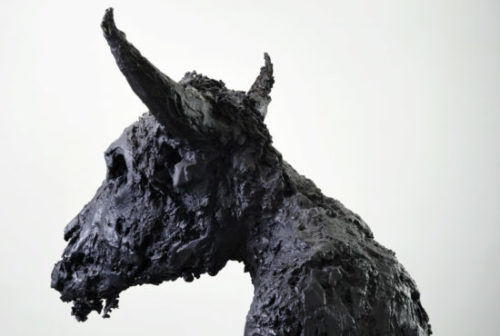
Nicola Hicks
“Today’s Western security policy managers are anti-intellectuals, seemingly unaware of their moral responsibilities and under much less control than when Dwight D. Eisenhower in his farewell speech in 1961 warned the world and the US itself about the MIC – the Military-Industrial Complex ( ) Today we are facing a Western militarist cancer in which policies are run by, not the MIC, but the MIMAC – the Military-Industrial-MEDIA-ACADEMIC Complex. “
Jan Oberg (Counterpunch, July 2018)
And this is a good part of what is comparatively worse today. The anti intellectuals who run media, and control government. They don’t write books, they don’t even really bother with ghost written ones anymore. And this is because nobody reads. This is a pack of jackals … a vicious nasty and under educated class of bureaucrats who control the governments of the West. This is the inbred diluted ruling class gene pool reaching its end game.
And they exhibit a very particular sort of vicious. And that is maybe worth examining. Also the ways this uncanny and anxiety laden cruelty operates on a representational level.
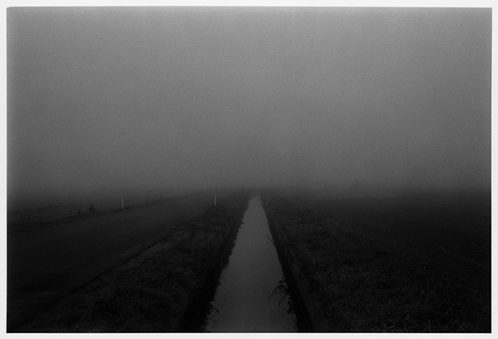
Toshiya Murakoshi, photography.
Psychoanalysis arrived at a moment when (I’ve written about this before, as have others) optical technology was undergoing enormous growth. The unseen was suddenly a reality. The detective novel followed upon these two disciplines. The idea of clues and things hidden from the eye, or the mind, were suddenly deemed of ‘more’ importance than what we could see with human eyes, or think, with our conscious mind. The connection or equation, or just relationship, between vision, the optical, and repressed thought, or the unconscious, is not as obvious as it might seem. But putting that aside for just a moment, and examining dreams and repression a bit, there is something important, I think, in how people dream. In the dream form, as it were, and how today, one must assume, people dream differently. The dream work then is anticipating certain conventions of psychoanalytic belief and clinical studies. And one of the implications of the information explosion that has come out of electronic media is the role of anticipation.
The fragmentation associated with how people read, how anyone reads off screens, actually, is also partly the result of an anticipatory form of thinking. We fill in the blanks, even if they aren’t blank. One skips over whole paragraphs sometimes, but it is because, often, the next paragraph is anticipated, is expected.
“The methodical sacrifice of libido, its rigidly enforced deflection to socially useful activities and expressions, is culture.”
Herbert Marcuse (Eros and Civilization)
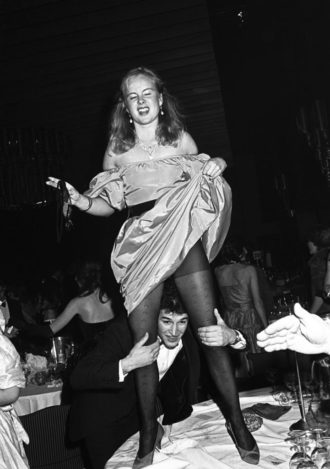
Dafydd Jones, photography. (Benita Douglas-Robertson & Matt Gomez at the Blizzard Ball, London Hilton. 2001. )
One of the curious aspects of this fragmented reading is how it seems not to matter. It does matter, of course, but it seems not to and the contemporary reader ‘wants’ it to not matter. Just as, I am coming to suspect, the manner that people dream is changing, the dream work has auto adjusted, on the fly as it were. But the electronic information tidal swell did not fall from the sky, nor is it the only influence toward fragmentation. And what I consider this anticipatory addiction, almost, is coupled to an acute anxiety. And along with that is, I believe, an acute narcissism.
“In the extreme there is very little experience of impulses except as reactions, and the Me is not established. Instead we find a development based on the experience of reaction to impingement, and there comes into existence an
individual that we call false because the personal impulsiveness is missing.”
D.W. Winnicott (Aggression in Relation to Emotional Development)
There is a uptick of interest (again) it seems in Winnicott. And mostly because his notions of the false self seem rather well suited to describe contemporary western dysfunction. And his ideas on aggression, and on drives, seems almost Reichian at times. Jeremy Elkins has a very good essay in an Amy Buzby edited collection of pieces on Winnicott….
“This other force or impulse also has an erotic quality, but it is an “erotism … of a different order from that of the instinctualerotism associated with specific erotogenic zones”. It is felt more generally in the muscles, it is not experienced as a local pressure, and it does not seek release or reduction of pressure in the way of the classical drives. It has “no climax … [and] this distinguishes [it] from phenomena that have instinctual backing.”
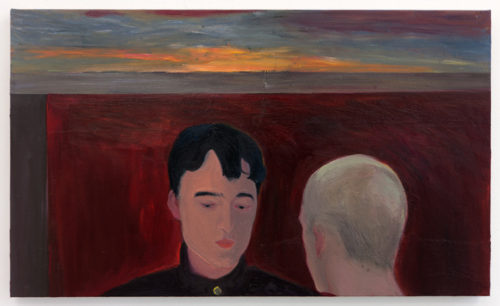
Xinyi Cheng
For Winnicott, this was an oppositional drive in a sense. An oppositional force. Oppositional but constitutive. He saw it as something that could be traced back to early infancy, and perhaps before that. The baby kicks in the womb, though it is doubtful he or she is trying to break out. What Winnicott called “motility” is essentially human activity. Something in the earliest movement of tissues, of aliveness, a personal impulse prior to the integration of the personality. And the reason this has relevance, here, is that it is tied into later developments connected to impingement. A term Winnicott favored. And this motility precedes any separation of body and psyche.
What is radical in Winnicott is his idea that for the infant, this motility– this personal impulse, or activity, IS the early self.
“In the extreme there is very little experience of impulses except as reactions,and the Me is notestablished. Instead we find a development based on the experience of reaction to impingement, and there comes into existence an individual that we call false because the personal impulsiveness is missing.”
D.W. Winnicott
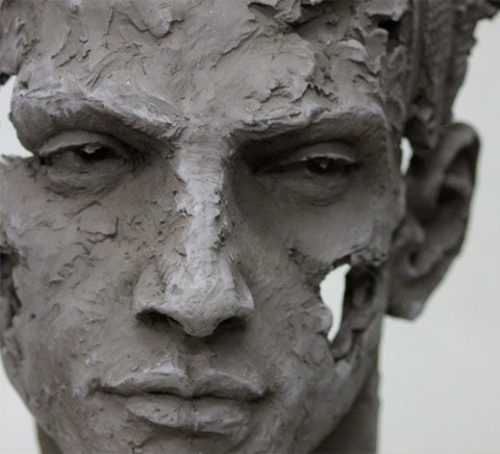
Christophe Charbonnel
But this reaction, another kind of misrecognition in a sense, is the birth of ME, but also of the NOT ME. The point for the purposes here is that impingement was anything that interrupted natural activity, the gesture that is met with resistance turns aggressive. Or rather…more precisely …
“But Winnicott’s account points to a second sense as well in which motility can be said to be bound up with aggression, one that is less familiar and perhaps more extraordinary in its implications: that not only is aggression at origin activity, but that activity is, almost from its origin, aggressive; that the basic motility impulse needs (or very early on comes to need) a world to press against; that at a fundamental level, there is a need for, and pleasure in, opposition; and that this need for, and pleasure in, opposition, is not born of hatred and hostility, but is prior to them. Free movement, on this understanding, then, is not movement that is unencumbered, but movement that is free (uninhibited) to discover the resistance of the world and to press against it. In healthy development, “opposition” is central, but in this case the opposition is not encroachment from the environment (impingement), but rather the existence of an environment itself, that which is encountered, met up against, that which we as observers would call (and what the infant will come in time to experience as) an outside, that which resists and that can therefore be pushed against.”
Jeremy Elkins (Being and Encountering: Movement and Aggression in Winnicott)
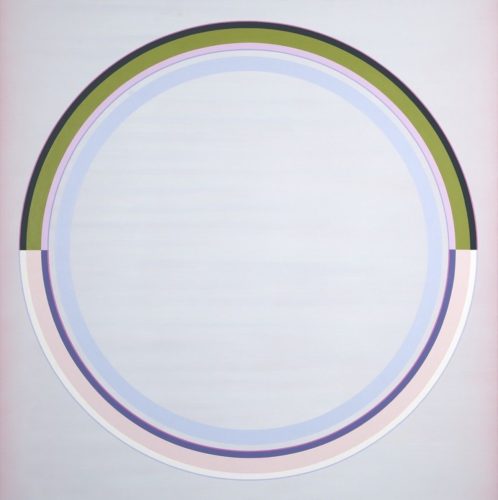
Carol Robertson
What is at stake for Winnicott is not just the emergence of the self, but the quality of the self that emerges. And this seems relevant to the questions of this post. Will there be a self of ego spontaneity, of free explorative creativity, or will it be reactive and dependent on opposition, a self that as Winnicott puts it, experiences the world as demanding of compliance? Will the outside (for the infant, these are the parents) accept being pushed against and prodded or will it (they) be inflexible and prone to a manufacturing of persecution. So that finally the great danger for the world is one where people have repressed their natural inclination to a healthy kind of aggression. And aggression is a tricky word in this context. One that demands repression of motility, then.
Here, clearly, the role of the parent is crucial. Not just the parent, but primarily so. For the baby must be allowed creative exploration and not restriction. On a macro level this is an argument against the Puritan ethic.
For Winnicott it is the creativity found originally in infant and even uterine motility that makes life have meaning. For the infant the “experience of continuity” gradually becomes more psychic. And such psychic-somatic continuity if interrupted breeds reaction. The rise of information technology and class hierarchies rigidly enforced are impingements, in Winnicott’s terms. The society of ever growing fragmentation is breeding a population without much in the way of reassuring continuity, psychic or otherwise.

Katherine Bradford
But this enormous leap of just pure information is an expression of desire, too. Just as the anticipation effect is an expression of revulsion. And the sense of anticipation is also a sense of how fungible information has come to seem. The paradox is that information is also fetishized and given exaggerated significance. The constant narrative device (in Hollywood) of computer experts solving complex problems is a kind of narrative anticipation — one needn’t really explain what happened, only that computational virtuosity contained it somehow. And I’ve noted the new digital techniques that smooth over movement in the picture on the screen, creating a certain antiseptic and unnatural world.
“Our age of propaganda differs in another way as well. Puritan sermons could last as long as two hours. Roman orators of the second century took courses to improve their memory so that they could remember all that they had to say. Early American patriots spent the entire summer of 1787 debating the U.S. Constitution and then produced, for the newspapers of the day, eighty-five articles totaling nearly 600 pages in its defense. Today, a televised political advertisement typically runs for thirty seconds or less. Magazine ads often consist of little more than a picture and a phrase. News of the day comes in short “soundbites” and “news snippets.” For example, 70% of all local TV news stories are a minute or less in length. “
Anthony Elliot, Elliot Aronson (The Age of Propaganda)
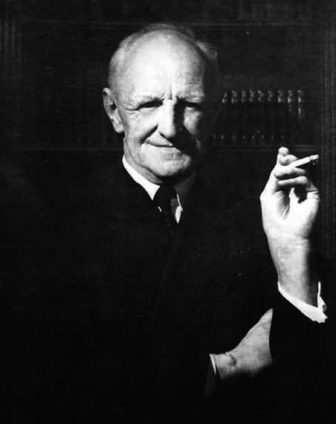
D.W. Winnicott
The absolute hostility to art is connected to this, too. Artworks that demand actual examination, either to look closely or read closely or listen closely are unendurable. Listen to TV news readers when asked to speak without recourse to a script. The shocking inability to speak is breathtaking. But this is glossed over, or sped past. Something else quickly replaces the vacuity. Nobody notices.
“The sacred is not outside consciousness, nor is it inside consciousness; rather, the sacred is inside as an outside that consciousness can neither comprehend nor avoid. This haunting incomprehensibility creates inescapable apprehension. In a manner reminiscent of Dionysus and his follower Pan, the sacred is fraught with ambiguity and provokes an ambivalence that prompts panic.”
Mark C. Taylor (Refiguring the Spiritual)
What Winnicott sensed in infants was a primordial need for creativity. Or rather activity is by definition creative. It takes a good deal of impingement to curtail creativity. To engage with an outside, a NOT ME world, and to discover what happens both to that world outside the self, and to the self. I have seen throughout my life the importance of even very small creative freedoms. I remember working at a book store, as a clerk. And when the assistant manager decided to allow us clerks (who stocked the books on the shelves) to choose which titles went face out, and where on the shelf that would occur. And suddenly stocking books was creative. Before that happened the stocking was pure drudgery. Boring, mindless, and numbing. After, with just that tiny freedom to choose, to discriminate, to evaluate color and message, the clerks were much much happier.

Nathan Kensinger, photography (Brooklyn Navy Yard).
There is another aspect to Winnicott’s theories on the false self and true self. One that came later in his work. And on aspect is worth mentioning here. And that is that while the very young infant is ‘pushing’ against the outside world, it is also partaking of an illusion, and an illusion it has created itself. The illusion(s) of having created this world, which is also not exactly an illusion. But gradually there must come a disillusioning. Gradually so as not to lose the foundation (as Elkins puts it) to reach the world creatively. Or has Winnicott puts it…
“…retention throughout life of something that belongs properly to infant experience: the ability to create the world even though at the same time we know that we can only create what we find .”
Now Winnicott also knew that this gradual disillusioning was not total, and the Reality Principle was capable of, for the healthy self, of being negotiated somewhat. Those book clerks still got minimum wage, and they were frustrated with this and angry and insulted. That didn’t alter the pleasure of the small creative freedom of the moment. But that freedom also didn’t change their paycheck.

Rene Grobli, photography.
As a sort of footnote to the discussion of Winnicott here…I want to quote Elkins again….
“Such ideas are not wholly absent from political thought. To the extent that they have found any serious reflection in contemporary discourse about social organization, they have been, I think, mostly on the (political) Right. From those quarters we could hear, not too long ago, an unabashed veneration, for example, of the virtue of war as renewing the body politic by expression of the natural need for antagonistic struggle. This is less common now, at least manifestly. A more common form of the celebration of aggression on the Right appears in the mythology of capitalism, especially of the Ayn Randian sort: capitalism as an arena for (or in some versions just the natural expression of) creativity and creative destruction, a form of life that gives free reign to the pleasures of risk taking and healthy antagonism between strong individuals. This is indeed mythological and at several levels. It ignores the fact that for most, modern capitalist society does not offer an arena for creativity, that the risks and antagonisms of everyday existence are experienced under conditions of survival, domination, and exploitation that are generally much more akin to what Winnicott would call “imposition”— a disruption of “being”—than a manifestation of “personal impulse.” It is also mythological in a deeper sense of treating the abstract virtues of aggression as though they were identical with the particular institutions and practices of a particular capitalist form of organization (whatever that is taken to include), thus foreclosing not only the questions of for whom the particular organization of society offers these attractions, but of the particular character and quality they assume within the particular social forms in which they appear.”
In other words, in contemporary Capitalist society the appearance of freedom is always unfreedom. The pantomime of creativity is actually reaction. Drones are not creative. Imperialism is not an outgrowth of the true self, the healthy individual psyche.
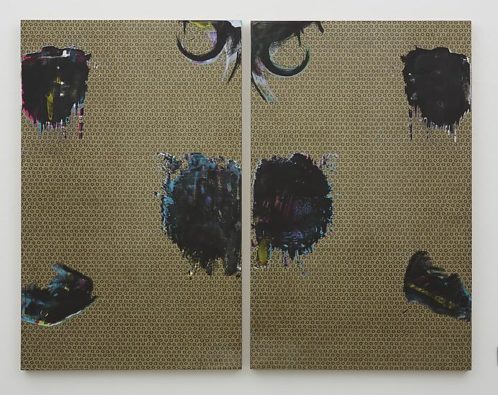
Andisheh Avini
“We must resist modernity, in other words, simultaneouslyon both the internal and external fronts, or we are doomed to fail.”
Amy Buzby (Vanquishing the False Self; Winnicott, Critical Theory, and the Restoration of the Spontaneous Gesture)
“Art exists in order to give the sensation of life, to feel the object, to experience that a stone is a stone. The aim of art is the sensation of the object as vision and not as familiar object. Art ‘singularizes the object’; it obscures the familiar Forms, and it increases the difficulty and the duration of perception. In art, the act of perception is an end in itself and must be prolonged. Art is a means of experiencing the becoming of the object; that which is already there is of no importance to art.”
Viktor Shklovsky
Richard Wollheim wrote (quoted by Elkins) that he stood for hours in front of a painting — a process that stripped away as many of the pre-conceptions he had as possible. And only then could he begin to actually see the painting. Mednick used to say that in his writing workshops at times; that you have to sit and be quiet and listen to all that chatter, all those voices in your head from TV and movies and friends and work. And finally, when it got quiet….you could BEGIN to write. Marcuse called it the liberation of the object from automatism.

Sheroanawë Hakihiiwë
“It seems that art as cognition and recollection depends to a great extent on the aesthetic power of silence: the silence of the picture and statue; the silence that permeates the tragedy; the silence in which the music is heard. Silence as medium of communication, the break with the familiar; silence not only at some place or time reserved for contemplation, but as a whole dimension which is there without being used. Noise is everywhere the companion of organized aggression. “
Herbert Marcuse (Art in the One Dimensional Society, lecture 1967)
Marcuse said somewhere, in an interview, that significant art must not *obey* the established reality. When considering Winnicott’s theses on early childhood development, and the idea of a false self that is reactive, that must retreat (in a sense) from the *outside*, there is then a self formed, a reactive obedient self that, as psyche and body de-link, becomes calcified and rigid. A self that represses its own motility. The obedient masked self that will also, often I think, become that Ayn Randian protagonist. A false theatrical courage, a performance of righteous Capitalist aggression. It is a burlesque heroism. And this is sort of key, I think. The diluted played out gene pool that produces a John Bolton, for example, has manufactured a masked self-as-crusader and zealot. Just beneath the surface, and this is actually very obvious, there is a terrified self loathing self that cannot find the way back to any kind of nurturing idea, any protective substitute caregiver. Alone in an isolation that is the established reality today. Bolton is only kept upright by the shield of his mustache.
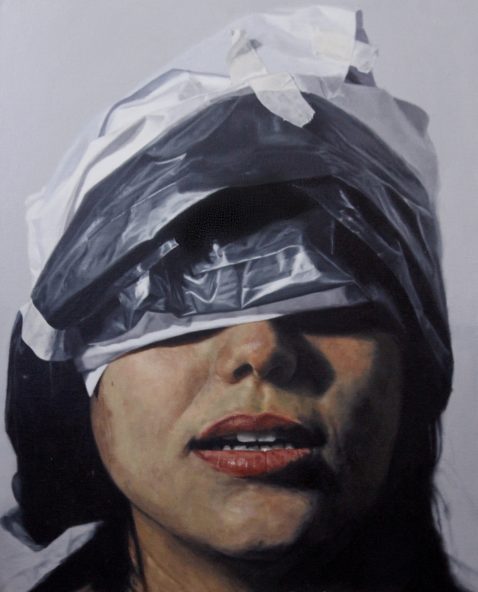
Hecdwin Javier Carreño Valderama
Mark Taylor’s quote above about the sacred is very resonant. For the voice of disobedience triggers great apprehension in the collective herd. And certain artworks, certain cultural products and projects are responded to with puritanical fervor. This is not work that a Tipper Gore asks be labeled, but rather it is work that inescapably serious, it is ambivalent in its foundation. And the selves of the repressed or impinged are also, I think, those who over anticipate all and every narrative — large or micro. Such is the speed of marketing and advertising today, the hyper anticipatory are scanning ahead of even thirty second sound bites. Change channels compulsively and this loss of psychic continuity is the condition of contemporary Western society. And there is something else that accompanies this hyper anticipation and that is the Ayn Randian aggression that can take the form of thought policing. I see this on both the right and left. It is as if a purge is ongoing, but a purge of what? Of a circle of one. It becomes a toxic self immolation mentally. In a self directed Inquisition.
For such purges of thought police actions are coupled to the hidden or repressed anxiety of what was missed, what points did *I* miss while jumping ahead. This was one of Lacan’s great insights; the sense of always arriving late. For in a sense this is not only metaphor.

Junglin Lee, photography.
This is part of what makes tragedy impossible today. Or rather, not impossible, but created in theatres without audiences. And perhaps that is the state of serious work today. Plays performed in empty theatres. Fifty years ago Peter Brook wrote The Empty Space, and today it would be, as a sequel, The Empty Theatre.
But somewhere, as Blau said, there is a memory. If a curtain was once there, on that stage, then somewhere there is a memory of that curtain. And a memory of how it was raised.
The rapidity of information and its recycling has created a hyper anticipation, and this anticipation has meant a withering away of attention. And that creates anxiety and ambivalence. And repression then changes. Freud saw all thinking as a memory of gratification. And we want to recapture that gratification. But the Reality Principle intrudes. As Winnicott said, the reality principle is an insult. The super ego is linked to dependence on the parent. So, if parents are increasingly delusional in some sense, are themselves incapable of attention, the reality principle intrudes ever more incessantly as a kind of anonymous prosecutor. The super ego is a product of the Law. Or, more correctly, the law is a reflection of the super ego. Institutional super egos. Winnicott’s impingement under late capitalism, under digital fascism, is starkly prosecutorial. The super ego also functions (increasingly I would say) retroactively. Adjustment to the puritanical restrictive and punitive system is reproduced automatically. The super ego today denies all memories of early satisfactions and gratifications. The dreams of contemporary life insist on the punishment and narrow demands of obedience of today’s institutional driven society. Dreams anticipate failures of satisfaction. To the point where acceptance of rationality is an excuse for acceptance of obedience. Anticipate the worst.
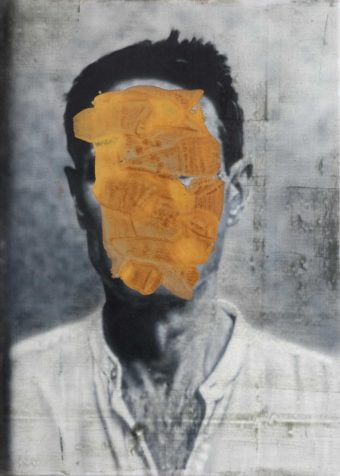
John Keane
“…repression will be different in scope and degree according to whether social production is oriented on individual consumption or on profit; whether a market economy prevails or a planned economy; whether private or collective property. These differences affect the very content of the reality principle, for every form of the reality principle must be embodied in a system of societal institutions and relations, laws and values which transmit and enforce the required “modification” of the instincts.”
Herbert Marcuse (Eros and Civilization)
Apathy from a populace faced with nuclear war is the product of a kind of amnesia of the self’s formation. The transformation from studies of working conditions for labor to studies of the subjectivity of workers took place as far back as the 1930s.
“The ongoing political praxis is diverted into the exploration of the psychic life of the group, sapping of energy sustained political thought and praxis. Politics becomes an afterthought.”
Russell Jacoby (Social Amnesia)

Ken Currie
Jacoby was speaking of the left that surrendered to a tyranny of subjective studies and focus. And Jacoby rightly notes that the culture of the therapeutic was, in effect, an administrating out of existence of political organizing. And it was actually only psychoanalysis (of the original radical variety) that served to demystify the adjustment therapies that have held sway since the 1960s.
“Critical theory as critique and negative psychoanalysis resists social amnesia and the conformist ideologies; it is loyal both to an objective notion of truth and to a past which the present still suffers.”
Russell Jacoby (Social Amnesia)
The individual cannot create itself outside of the relations and history into which it is born. Today’s identity based and corporate controlled emphasis on the subjective is no such thing. It is a shadow play in which no actual humans take part. The layers of history that form our development are erased. Pre History, the soul of humanity, is only found in the arts. And 99% of art is corporate produced non art.
“Psychoanalysis discovers the historical dynamics of society in the microcosm of the monad, as it were,in the mental conflicts of the individual.”
Max Horkheimer
Today’s mass marketed media info onslaught pretends to focus on the individual while actually erasing the individual. It speaks of the human spirit while preparing to annihilate the entirety of humanity. It glorifies creativity and culture while actually killing it by presenting only corporate approved propaganda as art, and by destroying the capacity for discrimination. It assaults everyone with noise and useless information. It suffocates thought.
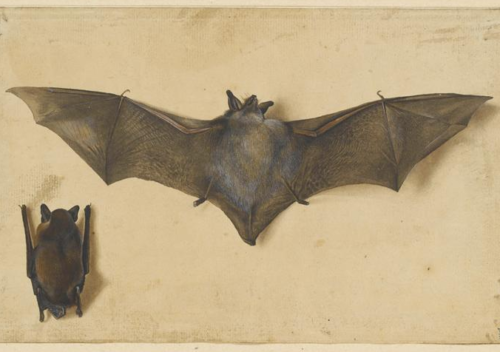
Albrecht Durer (1528)
And the absolute hegemony of sociological techniques, aided by computer processing and algorithmic predictive tools, serves only to reinforce a growing conformity of thought. The system encourages binary models in which the public gets to pick one, or the other. All the way back to the forties, in The Authoritarian Personality, Adorno noted (and Jacoby interestingly quotes partly)…
“Individualism, opposed to inhuman pigeonholing, may ultimately become a mere ideological veil in a society which actually is inhuman and whose intrinsic tendency towards “subsumption” of everything shows itself by the classification of people themselves.”
Theodor Adorno (The Authoritarian Personality)
American electoral politics (sic) is the spectacle version of what occurs in Academia regards almost any topic. There is a kind of mirroring or corollary to hyper anticipation in algorithmic predictions. The predictions needn’t, again, be true. For another algorithm will explain how NOT true is really its own form of true. Algorithms are only a kind of advanced form of data processing, and designed to fulfil only one task, essentially. And that task is to tell the screen reader what to think, what to prefer, and what to avoid. But computer analysis of user preferences is akin to pre-modern Shamanism and village magic. Its also not all that far from the old crystal ball acts of vaudeville.
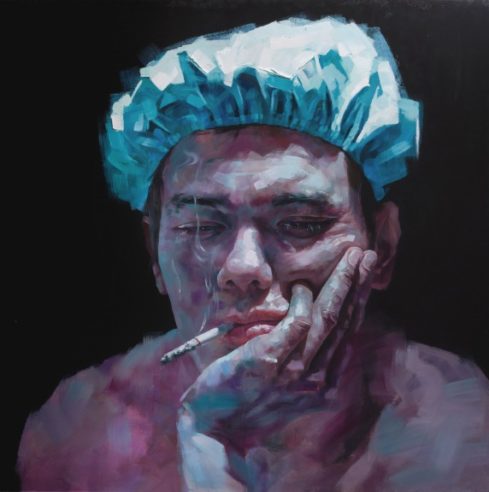
Will Yu
Social sciences today record the conformity of thought, but they do not create it. They do not however encourage any changes to that conformity. In fact there is almost nothing in contemporary social life that discourages uniformity of thought and behaviour. Quite the contrary.
And the aggressive nature of ruling class men, white men, in power is tied into a system (much of it computer mediated) that has degraded childhood for even the rich and powerful. It is hugely revealing to examine the product that Hollywood turns out today to see the changes from a mere forty years ago. The most heroic of protagonists is that Ayn Randian meat eating white savour — a character of absolute obedience to authority and unquestioning loyalty to those above him. Dissent is treated as dangerous and more, deluded. Criminals are overwhelmingly black or hispanic, and foreign threats come in three forms: Arab, Chinese, or Russian (and their subset Serbian). That is it. Men drink their coffee black, they eschew cultural matters as being too girly, and they are proud of their lack of erudition and defend such ignorance by claiming they are too busy killing Arabs (or Chinese or Russians). They always like fast cars, are good with repairs or carpentry. They do not read books.

michael elmgreen and ingar dragset, installation.
I saw a show recently in which someone was called a *revolutionary* (I don’t recall the show as they all blend together and I tend not to watch more than a first or second episode) and his interlocutors just sadly shook their heads. The implication was that no fate was worse. Better to be a leper or syphilitic than to be labeled a revolutionary. For the ruling class who manufacture these shows know what is dangerous and what is not. But that apocalyptic quality that permeates society today is a recognition, however opaque, that order is unravelling. That the inmates are running the asylum. And a final word then on the outsize number of Evangelical Christians in Trump’s cabinet. Pompeo and Sessions and Pence and Kudlow and DeVos are all Dominionists. And it worth a second post at this point to examine the role of Christian hardliners, of Domionism, and upticks in Pauline scholarship to figure out how that happened, or why it did.
“Possibility and necessity are equally essential to becoming (and the self has the task of becoming itself in freedom)….A self that has no possibility is in despair, and likewise a self that has no necessity.”
Søren Kierkegaard (The Sickness Unto Death)
But there is across all classes a kind of ennui and malaise, and there is no protection from the crippling effects of an increasingly automated system of domination. A domination that encroaches every day, more and more acutely, on childhood. A society that is reproducing the worst of itself, and producing ever more frightened and rigid personalities. Producing more pantomime people. Tear away the mask and find another mask. Tear that away and find yet another. Ad infinitum.
“Not in any beyond, but here on earth most men live in a hell…”
Freud

Meghann Riepenhoff
To donate to this blog, use the paypal button at the top of the page. Thanks.

Excellent, disturbing article. Thankyou!
This is spot on for the bubble the 1% live in. I deal with people in the 1% who are in the C-suite regularly. My partner deals daily with a billionaire. These people are so profoundly damaged, it is rather amazing they can function. There is no way for someone who can be a functional human being (a rare thing nowadays to be fair) to ever ascend the hierarchy. It is a wasteland of obsequiousness and an utter lack of anything even near creativity. Creativity requires compassion, since you need to be able to see possibilities. Without compassion you cannot imagine possibilities outside of what you see.
I will also add that they are a decidedly touchy bunch for the most part – we must always bend to their needs/will otherwise they will feel slighted in the oddest ways. But you yourself must NEVER feel slighted. They must slap around those who show the honesty of themselves (not that the underling shows anger or anything, just having honest moments with the senior individual, perhaps about choices in the firm or how things have effected them personally).
In order to survive such people I find that I must never give them the power of the purse. As Yves on NakedCapitalism has noted – once you have a mortgage and family, they know “they have you”. Where I work – it is the 5 bedroom house with a back yard and two cars. One person just below the C-suite I know has people come in just to iron his underwear and socks. Most of the semi-senior men (2 levels below C-suite) gloat over their expensive watches (not digital, of course. That is so 2 years ago.). They get their wives $5,000 bags.
There are no shadows, only clean lines and sleepwalking. I will never move up because the senior management knows I read philosophy. I have had multiple managers note that I think too much about things and their connections (not work, just the world outside work). They keep me here because they need the anti-them to keep things moving. But they recoil from the implications of that very need.
I just read “Liar, Liar” on Counterpunch, and immediately looked up your website. “Algorithm Kids” is another wonderful article. I’m so glad you’re out there somewhere, writing, amidst all the crap. I had almost given up on words. Thank you.